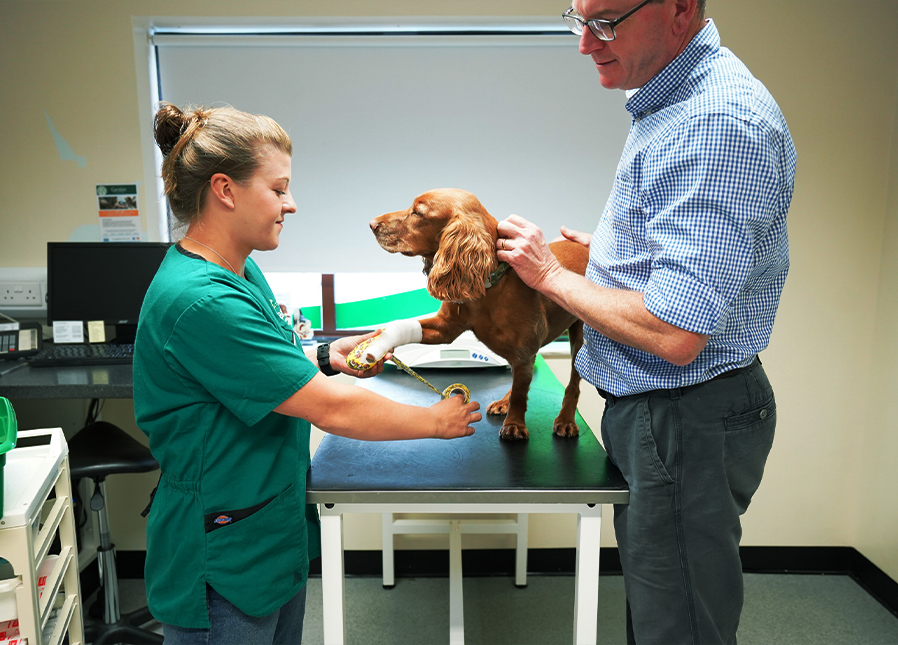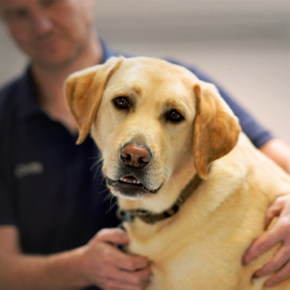
Spring is here, and for many of us, that means warmer Somerset & Wiltshire weather, blooming flowers, and spending more time outdoors with our furry companions. However, for dogs, spring can also mean the development or flare-up of allergies…
Dog allergy symptoms to be aware of
Did you know that dogs can be allergic to a variety of things just like humans, including tree and grass pollens, insect and flea bites, dust, and mould. These allergens can be particularly prevalent during the spring. Our veterinary team have put together a handy Dog Allergy Guide to help you get to know the symptoms of allergies to look out for.
Download our Dog Allergy Guide
Spring/summer environmental dog allergies [H3] Hay fever in dogs
Pollen allergies from trees, grass, flowers, and weeds can start in spring and last until autumn for some dogs. All dogs can suffer from pollen allergies (or hay fever) however, it seems to be more common in females and some breeds can be more prone to it, like Labrador Retrievers, Golden Retrievers, Dalmatians, and West Highland Terriers.
With airborne allergens, like pollen, dogs can have symptoms even when they’re nowhere near the source I.e., on the grass. Whereas some dogs may sneeze due to pollen allergies, there are many other more common symptoms to look out for – learn more here.
Mould allergies
Mould allergies can also affect dogs more when spring arrives, particularly in areas with high humidity; house mould should be dealt with as soon as possible.
Dust allergies
Dust allergies can lead to sneezing, breathing difficulties, and other common allergy symptoms
We’ve mentioned this as a ‘spring allergen’ as although it can occur at any time, ‘spring cleaning’ can disturb large amounts of dust and debris.
Flea bites
A whopping 95% of flea eggs, larvae and pupae live in the environment, not on pets. As the temperature warms up in spring, flea activity starts to ramp up. Some dogs are allergic to flea saliva and may have an immediate (within 15 minutes) or a delayed (24 – 48 hours) reaction that is most visible on the skin. If your dog has atopic dermatitis, they will be more prone to a flea saliva allergy.
Atopic dermatitis is a common condition that causes chronic itching, which leads to excessive scratching, biting or licking at the skin, resulting in inflammation of the skin and hair loss. This condition can be caused by an allergic reaction to environmental allergens, such as those above.
What to do if you think your dog is allergic?
If your dog is showing signs of allergies, it’s best to book an appointment with one of our vets. They can determine the cause of your dog’s symptoms and recommend an appropriate course of treatment. In some cases, they may recommend antihistamines or other medications to help control your dog’s symptoms. In more severe cases, they may also recommend an anti-allergy vaccination or topical medications to relieve the symptoms.
IMPORTANT: Never give your dog medication meant for humans, particularly antihistamines, without a vet’s explicit advice and dosage instructions. Some brands may contain harmful ingredients for pets and the dosage may not be the same as it is for humans. It’s also important to keep in mind that while spring is a common time for allergies to surface, dogs can develop allergies or have allergic reactions all year round.
Other reasons why your dog might be scratching
We think that it’s important to understand there may be other reasons for your dog’s scratching and irritation such as:
- Food intolerances
- Dry skin (from a lack of essential fatty acids in the diet, cold weather, or grooming products)
- Over-production of skin yeast or bacteria
- Skin infection
- Mites or lice
- A tick bite
- Behavioural issues such as anxiety or boredom
This is why knowing the other common symptoms of allergies and booking an allergy appointment for your dog is important. The sooner our team can investigate and diagnose, the sooner a treatment plan can be started and you dog’s daily life improved.
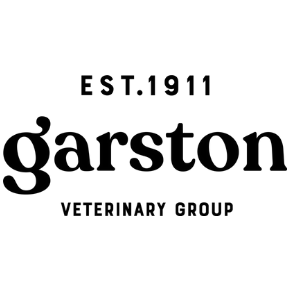
Easter surgery opening hoursThursday 6th April 2023 – Normal opening hours Good Friday 7th April 2023 – Emergency team Saturday 8th April 2023 – Normal opening hours Easter Sunday 9th April 2023 – Emergency team Easter Monday 10th April 2023 – Emergency team Tuesday 11th April 2023 – Normal opening hours Please remember to place food and repeat prescription orders by Tuesday 4th April 2023 Easter emergency teamAs a client of Garston Vets you can feel confident that we are always available to deal with any pet emergency that may arise, day or night, including Easter and Christmas. We are one of the few practices in Somerset & Wiltshire that operate our own out of hours emergency service on-site at our accredited small animal hospital at Garston House in Frome. Our hospital is staffed 24 hours a day, 7 days a week, looking after sick and injured patients or those requiring post-operative observational care – your pets are never left alone. It is the same cohesive team of vets and nurses that look after your animals out-of-hours as you will meet during the day at any of our practices. Our computerised patient records from all our surgeries are securely linked via internet servers, so we have access to all your pets clinical records whatever time of the day. If you have a pet emergency please call us on 01373 452225 |

The Garston Vets’ Wellness Plans are designed to provide all your pet’s preventative healthcare needs for twelve months at a time. Each membership allows you to spread the cost of your pet’s annual preventative healthcare needs into twelve affordable monthly payments, as well as make further savings in other areas.
Our NEW Premium Wellness Plan includes UNLIMITED VETERINARY CONSULTATIONS and DISCOUNTED OUT OF HOURS FEES, giving dog and cat owners ultimate peace of mind.
All our Wellness Plans have been specifically designed so that your pet can receive bespoke preventative healthcare all year round with the cost to you spread over monthly payments. The plans incorporate annual vaccinations, anti-parasite medications, and a whole range of additional inclusions & savings to allow your pet to remain in tip-top shape.
Our team will work with you to ensure every aspect of your pet’s healthcare is appropriate and tailored to their age & lifestyle.
At Garston Vets we know our Wellness Plans provide exceptional cover as they also include tick prevention – an ever-increasing problem in rural areas. To budget with confidence whilst providing optimal veterinary care for your pet, sign up to our 12-month payment plan and start enjoying the many benefits right away.
Join or upgrade your existing Wellness Plan membership today!
Please note, our Wellness Plan options are not a pet insurance policy. We would recommend that you also consider insuring your pet against accident and illness.
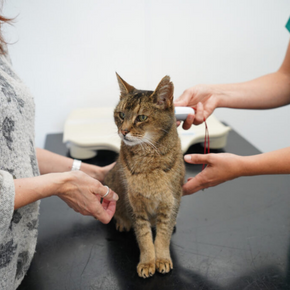
Our pets age more quickly than us and are generally classed as senior around the age of 7. The ageing process unfortunately comes with an increased occurrence of mobility issues, sensory loss, a degeneration in cognitive function and other age-related diseases.
Once our pets reach their elder years routine check-ups become more critical as your veterinary team will be able to detect subtle changes in your pet and be able to treat them before they become too serious.
We are now delighted to be offering our Senior Clinics, led by our Registered Veterinary Consult Nurses, which are recommended ahead of your pet’s annual booster so that the results can then be discussed with the vet during their annual health check. The clinics are designed not to find issues with your senior pet, but to allow us to assess, evaluate and improve the quality of our patient’s lives. All results will be recorded all your pet’s health records, which allows us to monitor their overall health and wellbeing through to their geriatric years. To allow our team to monitor and support our patients’ senior years, we recommend a routine visit to our Senior Clinic annually.
These clinics will initially be offered at an introductory price of £39.00 (normal price £45.50) for a 60-minute consultation.
Why not take a look at our questionnaire to see if your pet would benefit from a Senior Clinic Consultation?
If any of the questions that we have asked in the survey have been answered with a yes, then we would recommend booking a Senior Clinic for your pet.
What to expect from my Senior Clinic Appointment
Your senior clinic will be scheduled before your pet’s annual booster appointment. Before attending the senior clinic, you will be sent a copy of the questionnaire to complete honestly about your pet, you will also be asked to bring a fresh urine sample with you.
During the 1-hour appointment, the Nurse will perform a head to tail check of your pet checking eyes, ears teeth, skin and coat, recording any lumps found or changes to existing lumps. Checking claws/nails and clip if required, also expressing anal glands if needed. The nurse will also record vital signs such as heart rate, respiratory rate and blood pressure, which can only be done using a special piece of equipment. We will also discuss the completed questionnaire with you and chat about any small changes that you may have noticed in your pet’s behaviour as they have got older.
All of the findings, along with the urine results will be recorded before seeing the vet at the annual booster appointment, where appropriate treatment will be advised if required.
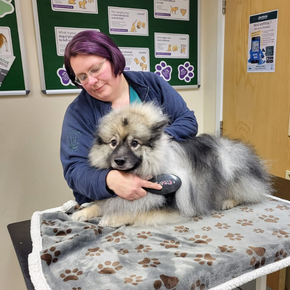
Vikki started in veterinary nursing in 1998 and then left to join the NHS. She returned to veterinary nursing in 2007 and qualified in 2010. Vikki enjoys running nurse consults and is one of our experienced consulting nurses. Vikki has a keen interest in nutrition, canine reproduction and weight management. She completed her certificate in Canine and Feline Veterinary Health Nutrition and became an Advanced Pet Health Counsellor in 2015 and gained a certificate in feline nursing in 2019. Vikki lives with her husband, son and three dogs (Keeshonds) whom she enjoys showing and has even entered Crufts a few times. In her spare time she enjoys crafting, reading, and baking
According to our nurse Vikki, grooming is great for your dog in many ways. Not only does grooming promote health in a variety of factors, it also helps to strengthen the bond between you and your dog.
Vikki has kindly shared the benefits of dog grooming below along with recommendations for different breeds and coat types. Have a read and see how a daily dog grooming routine is well worth your time!
Remember, if you have any queries on grooming, equipment, or your dog’s specific requirements, book an appointment with our vet nurses who can help.
Why should you groom your dog?
Our vet nurses advise that daily grooming will help you keep on top of your dog’s overall health and wellbeing. It will help you spot any areas for potential concern such as suspicious lumps and bumps, bald patches, flaky skin, or sores. You might also spot any pesky fleas or ticks nestled in the fur.
Grooming also promotes skin health; the motion of body brushing helping to increase circulation and promote natural oil production in the skin. This will, in turn, make your dog’s coat much healthier and naturally glossy.
Some long-haired dogs will also be prone to matting, especially after muddy winter walks in Wiltshire and Somerset and beyond. Daily grooming helps to remove these as soon as they start to knot, avoiding nasty and sometimes painful clumps.
Which dogs need grooming?
All dogs need grooming, according to Vikki!
- Dogs with thick coats benefit from daily brushing as they accumulate a lot of loose, dead hair and are prone to matting and collecting dirt and debris in their coat. Brushing helps to cleanse the coat and keep it healthy.
- Dogs with short, shedding coats such as beagles and dachshunds, won’t need the amount of grooming that a husky would need, but daily attention to their coat is still important for general wellbeing and to help you spot any potential problems.
- Dogs with wire coats like border terriers may not need day-to-day maintenance like other dogs, but regular brushing will help de-matt the fur and remove any debris or dead hairs resting on the skin. A brush made up of thin wires angled away from the skin is best. With these dogs, it’s wise to visit a professional groomer every few months for a hand strip; although they can be clipped, hand stripping is typically a gentle practice and preserves the health and condition of the coat. Our team may have recommendations of dog groomers in Wiltshire and Somerset, so do ask us!
- Dogs with wool-like coats such as cockapoos and poodles are often viewed as low maintenance from a grooming perspective because they shed less, if at all. However, these coats can get extremely matted very easily and need daily brushing to remove any slight build-up of knots. These dogs do benefit from professional clipping regularly as well.
- Grooming silky coats, like spaniels, can be tricky as their feathering, chest, and ears need daily brushing to keep matting away and the coat healthy and beautiful. The overall body coat also benefits from daily brushing but can be clipped either at home or professionally.
- Finally, dogs with double coats like retrievers and sheepdogs need daily brushing to keep tangles at bay. The difference with these dogs is that they should not be clipped unless specified by a veterinary professional.
More benefits of dog grooming
As we’ve discussed, there are benefits for all types of coats but it doesn’t stop there. Garston Vets’ nurses also advise that daily grooming helps you check your dog’s teeth, eyes, ears, and paws for any potential issues. You can look for anything lurking in the fur too like fleas and ticks, and you may notice unpleasant smells (usually in the mouth or ears) that indicate a problem.
Plus, research has found that grooming pets can have a calming and de-stressing effect on humans – so, grooming your dog is actually good for your health too!
If, while grooming your dog you come across anything that you think may be cause for concern, please don’t hesitate to call us for advice on 01373 452225 – you can find the rest of our contact details online.
If you would like to know more about grooming techniques and the kit most suited to your dog, our veterinary nurses are always happy to offer suggestions.

New year brings new resolutions. One of those resolutions may be to try new things and get out more with your dog. In this article, our vet, Andy Woodward has identified the top 10 things to do with your dog in 2023.
9 things to do with your dog in 2023
- Visit a dog friendly beach in Somerset
- Try joining one of Charismatic Pets fun sports or activity classes
- Enjoy a fun, warm swim at a local hydrotherapy pool
- National Trust dog friendly walks and days out
- Enter the Battersea Muddy Dog Walk Challenge
- Take a walk (and quite possibly lunch) in The New Forest
- Try Paddleboarding together in Bradford on Avon
- Become a volunteer with Dogs for Health
- Book a long weekend break in a dog friendly cottage at one of the beautiful National Parks in the UK, like Andy and his Labrador Dave did.
There are many different activities and places to visit with your dog, some of them are completely free, while others may have a small fee.
Our vet Andy has chosen 9 activities that he thinks you might enjoy with your dog this year, including a link to a list of dog friendly beaches and hydrotherapy pools. Trying new challenges such as dog agility, paddle boarding or hoopers can really help stimulate your dog’s mind and body giving them new challenges from very energetic activities like agility through to the gentler activities such as hoopers or Scentwork training.
Just being in a new environment can have a huge impact not just physically but mentally also. Engaging their brain by introducing them to new activities and environments can have so many beneficial affects so why not make it a goal for 2023 to try new things.
Check your pet’s health
Before you do take on any new challenges however make sure your pet’s health is in good working order before pursuing an activity that may be difficult or put too much stress on them physically. Get in touch with our team to arrange a check-up.
If you have an older pet or one who struggles with strenuous activity then there are still ways to adapt the activities to suit them, whether it’s finding shorter easier walks or activities such as hoopers that are designed for those that struggle with impactful exercise.
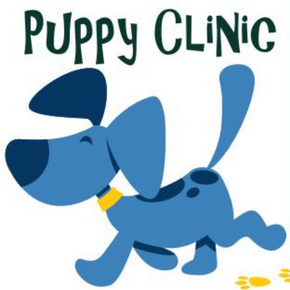
Our nursing team are delighted to be launching a NEW service in December 2022.
Learning about raising a well-rounded puppy is one of the most important factors of dog ownership. Why not come along to one of our puppy clinic presentations by Charis Vincent from Charismatic Pets for advice on:
• Establish clear communication with your puppy
• Socialisation
• Separation anxiety
• Integrating your puppy into family life
• Mouthing
• With plenty of opportunities for questions at the end
The session is open to clients and non-clients from pre-purchase to owners with puppies up to the age of 18 weeks.
The Puppy Clinic is held at our Westbury Surgery on a Monday evening. Please ask at reception for the next available session.
Attendance is £10 per person or FREE if on the Wellness Plan. This event is for ‘hoomans’ only and every attendee will receive a special goody bag to take home!

Seasonal surgery opening hoursChristmas Eve 24th December – 8am – 4pm Christmas Day 25th December – Emergency team Boxing Day 26th December – Emergency team Bank Holiday Tuesday 27th December – Emergency team Wednesday 28th December – Normal opening hours Thursday 29th December – Normal opening hours Friday 30th December – Normal opening hours New Year’s Eve 31st December – 8am – 4pm New Year’s Day 1st January – Emergency team Bank Holiday Monday 2nd January – Emergency team Tuesday 3rd January – Normal opening hours Wednesday 4th January – Normal opening hours Please remember to place food and repeat prescription orders by Wednesday 21st December 2022
Emergency CareAs a client of Garston Vets you can feel confident that we are always available to deal with any pet emergency that may arise, day or night, including Christmas Day, Boxing Day and New Year’s Day. We are one of the few practices in Somerset & Wiltshire that operate our own out of hours emergency service on-site at our accredited small animal hospital at Garston House in Frome. Our hospital is staffed 24 hours a day, 7 days a week, looking after sick and injured patients or those requiring post-operative observational care – your pets are never left alone. It is the same cohesive team of vets and nurses that look after your animals out-of-hours as you will meet during the day at any of our practices. Our computerised patient records from all our surgeries are securely linked via internet servers, so we have access to all your pets’ clinical records whatever time of the day. If you have a pet emergency, please call us on 01373 452225 |
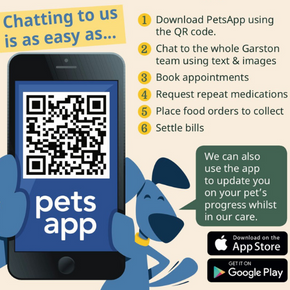
Chatting to our small animal team, booking appointments, requesting repeat medication and food orders, plus settling bills and keeping up to date with your pet’s progress while staying with us has just got a great deal easier.
PetsApp is our new online service that is keeping our phone lines free for more urgent calls. If you haven’t downloaded PetsApp already, you can do so …
By responding to our SMS invitations,
or
By clicking on the magic link https://petsapp.com/ml/ubgjLa2c2n9i3BEi9, selecting your usual Garston surgery, and creating your pet’s profile,
or
By using the PetsApp chat tab on our website in the bottom right-hand corner of our homepage.
Once you have a PetsApp account the whole family can use the same log-in to contact us about your pet.
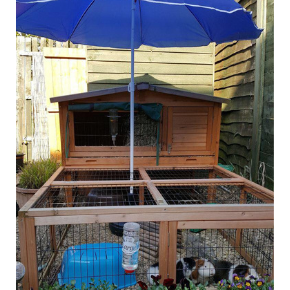
Even though they are small animals, the risk that hot temperatures pose to rabbits, guinea pigs, and hamsters is big. In fact, for most small pets, their ideal temperature range tops-out at 23-25°C and anything above can quickly become life-threatening. Some bunnies can tolerate temperatures as high as 30°C but it’s a risk not worth taking.
As rabbits, guinea pigs, and hamsters cannot sweat like humans do, and have limited options to cool themselves down, it’s up to their owners to help them survive summer heatwaves.
If you have questions after reading our article or concerns about your pet’s health, get in touch with our team.
Symptoms of heatstroke in small furry pets
If your rabbit, guinea pig, or hamster starts to exhibit any of the following symptoms of heatstroke you should get them somewhere cool and call us on 01373 452225 for emergency advice.
- Shallow, accelerated breathing (panting)
- Excessive drooling (thick saliva)
- Hot ears
- Wet nose
- Bright red or blue tongue and gums
- Less urine output due to dehydration
- Lethargy and weakness
- Confusion
- Convulsions
- Cardiac arrest
How to help small furries cope in summer
When the mercury is rising, there are some steps you should take to make sure your small furry pets stay safe. Our team of experienced vets have the following advice:
- Rabbits regulate their temperature through their ears so one way to boost their natural cooling system is to spray their ears with water – it will evaporate as it warms up. Avoid soaking your bunnies as this could put them at risk of respiratory illnesses.
- During hot weather, move their hutch or cage out of direct sunlight and into the coolest spot that is practical.
- Keep water bottles and bowls topped up and if there is access to power nearby, think about setting up a fan (not pointed directly at the cage) to keep the air moving.
- Make a ‘cold water bottle’ and wrap it in a cloth for your pets to lounge against or set up frozen water bottles around their housing.
- Place a cooling mat or pop some cold tiles in the cage or hutch for your pets to lie on.
- Rabbits and guinea pigs can be more prone to flystrike in warm weather so make sure your pets are clean and dry (check for urine stains) and keep their bedding and housing impeccably clean.
All these little tricks should ensure your small furry pets do not succumb to the heat. Remember, our vets are here to help if you are concerned about your pet’s health.


